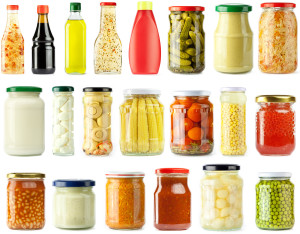 Mentor Works has helped dozens of Canada’s fastest growing agriculture and agri-food businesses select and access government funding programs. Now, Mentor Works gives agriculture and agri-food businesses across Canada the opportunity to learn from Canada’s top government funding expert, Bernadeen McLeod.
Mentor Works has helped dozens of Canada’s fastest growing agriculture and agri-food businesses select and access government funding programs. Now, Mentor Works gives agriculture and agri-food businesses across Canada the opportunity to learn from Canada’s top government funding expert, Bernadeen McLeod.
What You Will Learn From Mentor Works Agriculture and Agri-Food Webinar
Funding resources are available for small businesses in the agricultural and agri-food sector from both the provincial and federal levels of government. The challenge is how to find and take advantage of what is out there.
Government Funding for Agriculture and Agri-Food Webinar Learning Points:
1.) Learn about the most beneficial and most popular government funding programs for agriculture and agri-food,
2.) Gain knowledge of important government funding terms such as “financing trends”, “stacking limits”, and more, 3.) How to get on the path to creating a financing strategy to help fulfill your growth goals for 2014 and beyond.
Government Funding for Agriculture and Agri-Food Webinar –Event Details
Dates/Times:
- Friday February 14th, 10:30am-11:45am

- Monday February 24th, 11:30am-12:45pm

- Monday March 24th, 2:00pm-3:15pm

- Monday April 4th, 10:00am-11:15am

Cost: Free of charge for established small to mid-sized businesses in agriculture and agri-food sector.
Venue: Online through Go To Webinar
Canadian Government Funding for Agriculture and Agri-Food Webinar –Eligibility Requirements
In order to be eligible for complimentary access to this webinar, business owners and leaders must meet the following criteria:
- Operating in the agricultural or agri-food sector
- Incorporated in Canada for at least 2 years
- Financially stable
- Not exclusively a retailer and/or distributor
- Not a start-up
- Company must manufacture or conduct R&D in Canada
Canada Business Grants and Loans Available to Agriculture and Agri-Food
Programs covered in this webinar include the $3 billion, 5-year initiative known as Growing Forward 2, the new Local Food Fund program, and more. This webinar will benefit any food company in Ontario interested in funding for:
- Product/Tech Development;
- Commercialization;
- Marketing and Promotions;
- Collaborations;
- Capacity Building Projects;
- Capital Equipment;
- Technology Adoption;
- Food Safety/Certifications;
- Hiring;
- Training.
Learn More about Mentor Works Canadian Business Grants and Loans Experts
Watch this introduction video to learn more about Mentor Works and the services they offer.
Please connect with Mentor Works on your favorite social media network, including: Twitter, LinkedIn, Google+, and Facebook.
Views: 226
Comment
© 2026 Created by Darren Marsland.
Powered by
![]()
You need to be a member of Ontario Agriculture to add comments!
Join Ontario Agriculture